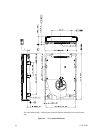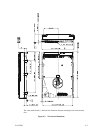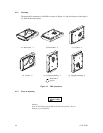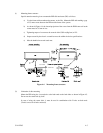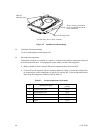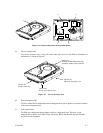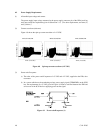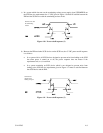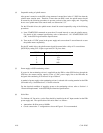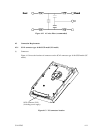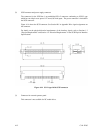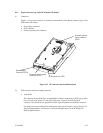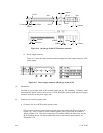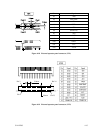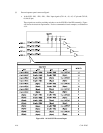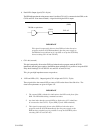
4-10 C141-E205
(4) Sequential starting of spindle motors
After power is turned on to the IDD, a large amount of current flows in the +12 VDC line when the
spindle motor rotation starts. Therefore, if more than one IDD is used, the spindle motors should
be started by the following procedures to prevent overload of the power supply unit. Regarding
how to set a spindle motor start control mode, see Subsection 5.3.2.
For the NP model drives, the spindle motors should be started sequentially using of the following
procedures.
a) Issue START/STOP commands at more than 12-second intervals to start the spindle motors.
For details of this command specification, refer to Subsection 3.1.10 “START/STOP UNIT
(1B)” in the SCSI Logical Interface Specifications.
b) Turn on the +12 VDC power in the power supply unit at more than 12-second intervals to start
the spindle motors sequentially.
For the NC model drives, the spindle motors should be started after a delay of 12 seconds times
[SCSI ID] by setting CN1-38 pin to open and CN1-78 pin to short.
SCSI ID Delay time of spindle motor starting
0
1
2
.
.
.
15
0
12 s
24 s
.
.
.
180 s
(5) Power supply to SCSI terminating resistor
If power for the terminating resistor is supplied from the IDD to other SCSI devices through the
SCSI bus, the current-carrying capacity of the +5 VDC power supply line to the IDD must be
designed with considering of an increase of up to 200 mA.
A method of power supply to the terminating resistor is selected with a setting terminal on the IDD
(NP model only). See Subsection 5.3.2 for this selection.
For the electrical condition of supplying power to the terminating resistor, refer to Section 1.4
“Electrical Requirements” in the SCSI Physical Interface Specifications.
(6) Noise filter
To eliminate AC line noise, a noise filter should be installed at the AC input terminal on the IDD
power supply unit. The specification of this noise filter is as follows:
• Attenuation: 40 dB or more at 10 MHz
• Circuit construction: T-configuration as shown in Figure 4.12 is recommended.



